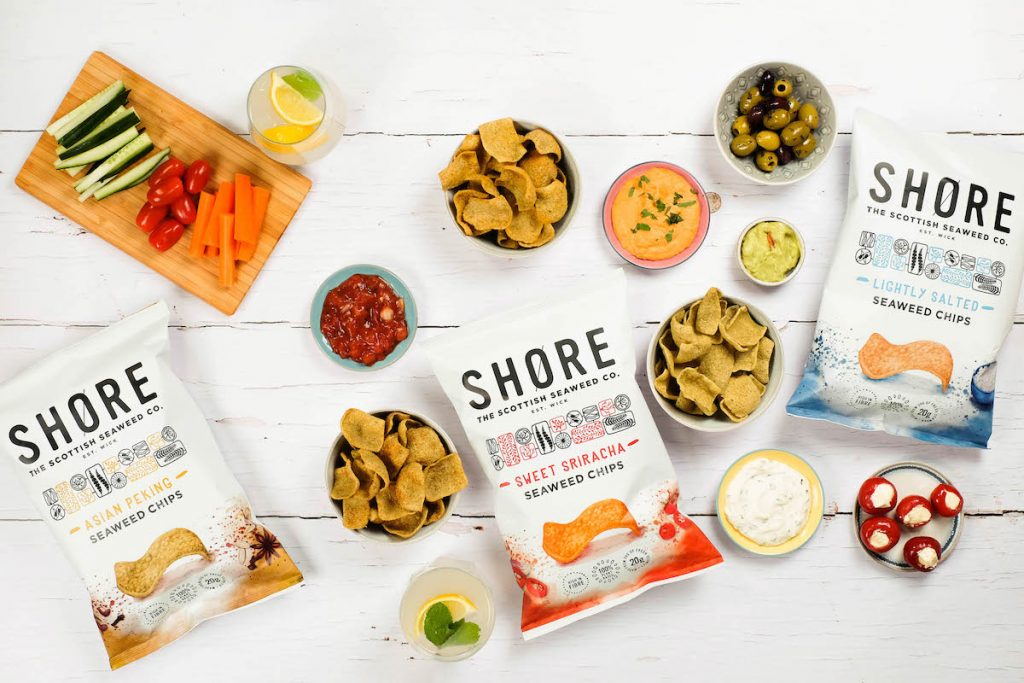You may think of seaweed as that slippery thing that sticks to your feet when you swim in the sea. But it’s also highly nutritious. In fact, with its high iodine, vitamin, and mineral content, seaweed is not only a healthy snack. It’s a superfood.
“Other superfoods such as goji berries are all imported,” says Keith Paterson, managing director for SHORE, the Scottish Seaweed Company. “But seaweed grows right here on our beaches”.
And working for SHORE, Paterson should know. The company has just won Best Snacking Innovation for its sweet sriracha seaweed chips at the World Food Innovation Awards, 2021. Bringing sustainability into the world of snacking, SHORE wowed the judges who called the snack: “the sustainable and healthy ocean gem turned into chips”.
Seaweed may seem like just another health fad. But there is a long history of eating it in the UK and around the world. If you’ve ever enjoyed sushi or other Asian dishes, the chances are you’ll have tried it. And up until 50 to 100 years ago, coastal people in the UK enjoyed seaweed as part of their regular diets.

But how can this healthy snack be sustainable?
SHORE takes great care to ensure its model is good for the planet. Having a license to gather from almost 50km of coastline, the small team wild harvests the sea vegetables, carefully monitoring overall biomass, and only ever taking 20% of what is available. In this way, SHORE gets the prime parts for eating and the seaweed can renew in its own time.
But before you take to the beach to forage for this healthy snack yourself, there’s one thing you need to know. The thing that makes seaweed so nourishing is that it soaks up nutrients from the sea. Harvest from dirty waters and you risk gathering contaminated plants.
So if you’re looking for a healthy snack that’s produced with the environment in mind, try out SHORE’s range of snacks, available in Co-op, Sainsbury’s, and online. Don’t be scared, says Paterson: “people generally find the taste isn’t as bad as they were expecting”.

